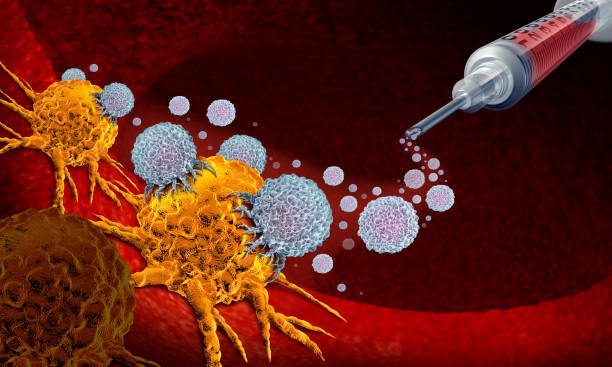Cancer remains one of the most difficult diseases to treat, even with decades of medical advancements. However, a groundbreaking discovery by Dr. Ronald Levy and his team at Stanford University is offering renewed hope.
Their pioneering immunotherapy, delivered through a single injection, has shown extraordinary promise in early trials, potentially transforming the future of cancer treatment.
Here’s a closer look at this revolutionary therapy and what it could mean for patients worldwide.
The Breakthrough Therapy
Dr. Levy’s team has developed an innovative immunotherapy that activates the body’s own immune system to target and destroy cancer cells. Unlike conventional treatments like chemotherapy or radiation, which can damage healthy tissues, this approach focuses solely on cancerous cells.
How It Works
This treatment uses a single injection containing two powerful immune-activating agents:
- An Immune-Stimulating Agent: This agent activates T-cells, the white blood cells responsible for identifying and attacking cancer cells.
- A T-Cell Activator: This boosts the activity of T-cells already present within the tumor, enhancing the immune system’s ability to fight cancer.
When injected directly into a tumor, these agents work in tandem to trigger a highly localized immune response. The immune system is then reprogrammed to destroy not only the primary tumor but also metastasized cancer cells throughout the body.
Why This Therapy Is Revolutionary
This injection-based approach addresses several limitations of existing cancer treatments:
- Direct Targeting of Cancer:
The therapy is administered directly into the tumor, ensuring a focused immune response and minimizing the risk of side effects. - Harnessing the Body’s Natural Defenses:
By activating and enhancing the immune system, the therapy trains the body to recognize and attack cancer cells more effectively. - Effectiveness Across Multiple Cancer Types:
Early trials indicate this therapy could work on a variety of cancers, including solid tumors and lymphoma. - Potential for Single-Dose Treatment:
Instead of undergoing multiple invasive treatments, patients might achieve significant results with just one injection, improving their quality of life.
Promising Results from Early Trials
Preclinical trials on mice have delivered remarkable outcomes, with the therapy eliminating cancer in up to 97% of cases. Tumors shrank dramatically, and in many cases, secondary tumors disappeared entirely.
Early-stage human trials have also been highly encouraging. Patients with advanced cancers have experienced substantial tumor reduction, offering hope to those who previously had limited options.
Implications for the Future of Cancer Treatment
If successfully developed and approved, this therapy could redefine cancer care:
- Personalized Medicine:
The ability to inject directly into tumors allows for customized treatments tailored to each patient’s unique cancer profile. - Reduced Side Effects:
Unlike systemic treatments like chemotherapy, this therapy minimizes side effects by activating the immune system locally. - Increased Accessibility:
A single-dose treatment has the potential to make cancer therapy more affordable and accessible to patients worldwide. - A Cure for Metastatic Cancer:
This approach could offer a breakthrough for treating metastatic cancers, which are notoriously difficult to address and cause the majority of cancer-related deaths.
Challenges and Next Steps
While the initial results are groundbreaking, further research is necessary before this therapy becomes widely available. Key challenges include:
- Long-Term Safety: Researchers need to ensure there are no unforeseen complications or side effects over time.
- Efficacy in Humans: Larger clinical trials across diverse populations are required to validate its effectiveness.
- Regulatory Approval: The treatment must undergo rigorous testing and gain approval from global health authorities before it can be distributed.
A New Era of Hope
Dr. Levy’s injection-based immunotherapy represents a monumental step forward in the fight against cancer. By reprogramming the immune system to attack cancer cells with precision, this innovative approach has the potential to save countless lives and revolutionize cancer care.
Though it may take time for the treatment to become widely available, its promise is undeniable. For patients and families affected by cancer, this breakthrough offers a beacon of hope for a future where cancer is no longer a life-threatening disease.
Spread the Word
Share this article to raise awareness about this groundbreaking development and inspire hope for a world free from cancer.


